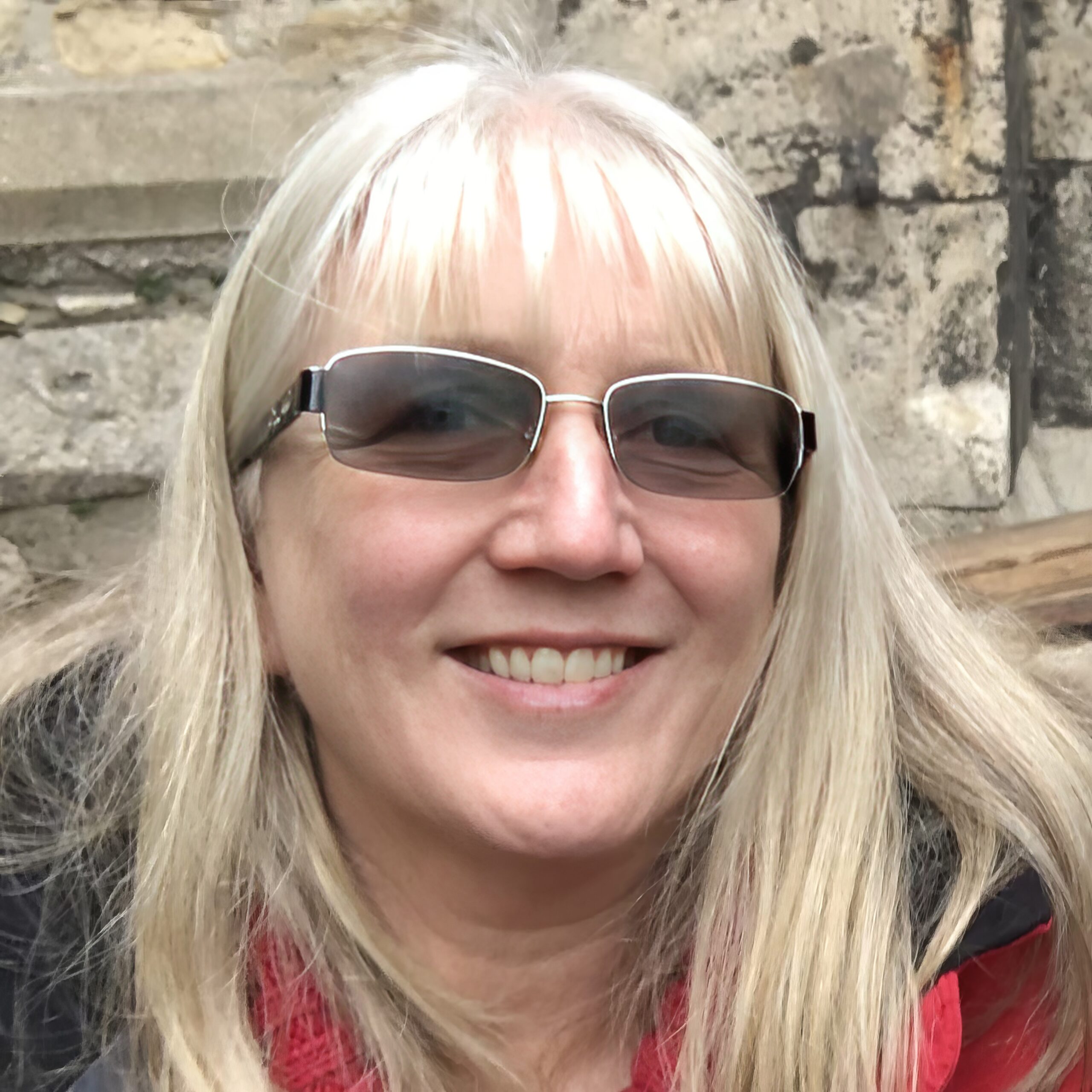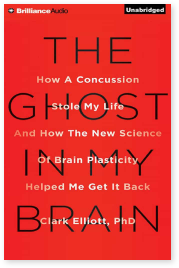Seven Years of Symptoms
“Your brain is trying to figure out why there is a disconnect between what you think you see and the actual reality around you.”
That is how Michelle DesRosiers of Markham, Ontario, Canada describes optometrist Deborah Zelinsky’s diagnosis of why she struggled for seven years with vestibular migraines, cognitive fatigue, vertigo, balance problems, and other symptoms following two head injuries within six months of each other in 2016. Both traumas were caused by falls – one as a result of slipping on black ice and the other occurring inside her home.
“My perception of where I am in space and where I actually am was out of sync. My injured brain was using up all its energy to deal with the issue,” Michelle relates. “Her (Zelinsky’s) analysis was amazing.”
About Dr. Zelinsky and the Mind-Eye Institute
Deborah Zelinsky OD is founder of the Mind-Eye Institute and serves as its executive director for research. She is recognized globally for her studies of the retina, which is composed of brain tissue and serves as a major component of the central nervous system. Environmental signals (in the form of light) enter the retina and convert to electrical signals, which propagate through neurons and interact with key brain structures. These retinal signals affect not only the visual cortex fort eyesight but other, significant regions of the brain as well, linking with structures like the midbrain, thalamus, hypothalamus, and brainstem.
“Optical interventions, including highly individualized therapeutic eyeglass lenses, can selectively stimulate retinal activity, thereby influencing retinal processing and brain function and redeveloping the linkage among a person’s sensory inputs, especially eyes and ears,” Dr. Zelinsky notes.
The Mind-Eye team’s use of filters, lenses and prisms in glasses alters the way in which light disperses across the retina. Changes in luminance on the eye affect how the brain interprets and reacts to information about the environment and can impact a person’s spatial awareness, body movement and selective attention to sound.
With Mind-Eye Brainwear™, a reference to specialized eyeglasses, Mind-Eye optometrists are often able to maximize patients’ visual performance; improve perceptions of their world; mitigate symptoms of brain injury, concussion, stroke, auditory/visual imbalances, retinal processing dysfunction, and other neurological disorders; and even address learning problems due to autism, attention deficit hyperactivity disorder, and similar challenges.
When her head injuries first occurred, Michelle considered them as concussions from which she would eventually recover. Instead, her symptoms gradually worsened, seriously impacting her work in her family-owned property management company. “I needed a personal assistant just to do simple tasks like open and read my emails. I eventually was forced to take some time off work and focus on my recovery,” she says. “I also was missing family and social events because of my symptoms and spending a lot of time in recovery mode.”
Once an avid reader, Michelle recalls having to convert to audio books. She developed light sensitivity – fluorescent lighting especially bothered her – and was unable to spend any significant time shopping in grocery and other retail stores. “I could not tolerate motion around me, people walking past, general activity. Just my scanning of products on grocery shelves created a sense of motion that led to vertigo and nausea.”
“I thought I had simply suffered concussions and would eventually recover, but later I realized my symptoms were a result of a brain injury.”
The Path to Neurological Recovery
Michelle sought assistance from standard health professionals and specialists, including vestibular therapists to address her balance problems and optometrists to test her difficulties focusing. But her ongoing struggles and the inability to regain skills that would allow her to return to more normal everyday activities suggested her head traumas were more than concussions. “Through the Ontario Brain Injury Association, I talked to people in similar circumstances and came to accept that I had suffered a mild traumatic brain injury.”
What perhaps was most frustrating to Michelle was that all the therapies she had been undergoing up until that point “only addressed my symptoms. None of them dealt with the root cause of my problems.”
She first learned about Dr. Zelinsky and the work of the Mind-Eye in the book Ghost in My Brain, authored by written by DePaul University professor Clark Elliott, Ph.D. In it, Dr. Elliott details his eight years of struggles following a head injury in a car crash and describes how he found relief through Dr. Zelinsky’s efforts and through Donalee Markus PhD, founder and president of Designs for Strong Minds in Highland Park, Illinois. Michelle’s impressions of the successful work of the Mind-Eye Institute were further amplified when she later watched an online symposium featuring Dr. Zelinsky and received positive feedback about the Institute from members of a Facebook concussion group.
Harboring what she calls a “certain amount of doubt,” she completed the patient survey on the Mind-Eye web site – “to every question, I said, ‘yes, that’s my problem’” -- and then did some additional research, “hoping to find something equivalent to the Mind-Eye Institute.” But she could not. What finally prompted her to contact the Mind-Eye Institute was the information she obtained by “googling Dr. Zelinsky. I saw everything she has been doing. She has been raising [science] to a different level.”
Michelle made an appointment with Mind-Eye, boarded a plane in June 2023, and managed as best as she could the hustle-bustle of the Toronto and Chicago O’Hare airports in order to get to the Institute in Northbrook. After undergoing extensive testing by the Mind-Eye team and a lengthy evaluation session with Dr. Zelinsky, Michelle received her first pair of Mind-Eye glasses a few weeks later.
Why the Science Works
Dr. Zelinsky is not surprised by Michelle’s progress. At Mind-Eye, “we are using the principles of advanced optometric science, including retinal stimulation with light, to modulate neural circuits in our patients and address symptoms of brain trauma, stroke, and other neurological disorders,” Dr. Zelinsky explains.
“Changes in how the retina processes environmental signals – both image-forming and non-image-forming – through variations in the way light passes through it influence both physical and mental health. The brain is plastic – able to change and regenerate in response to injury and neurological disorders.”
Michelle's Experience with Mind-Eye Brainwear™
“Some patients have said the glasses had an immediate impact on them. But that was not the case for me. I gradually had to get used to wearing them. Initially, I could only keep them on for 10 seconds at a time. Eventually, I was able to wear them full time,” Michelle says.
Meanwhile, “something amazing was happening,” Michelle wrote in a journal after about a month of wearing her Mind-Eye glasses. “I found myself able to do more things. By Labor Day, my husband and I traveled to our cottage, and I rode in a boat for half an hour. When we returned, I was still able to function and visit with a neighbor. That truly proved a huge step forward for me.”
As of November 2023, Michelle is on her second pair of Mind-Eye glasses, which she calls “life-changing.”
“I am able to do so much more during the day without triggering symptoms. And I still have energy by the end of the day. I can go on the computer and look at the screen for awhile and read my own emails.” The Mind-Eye also has given Michelle visual learning activities, which she says are improving her memory and overall ability to think.
She calls her restorative journey “a process. I have to be patient with myself. Even my husband has noticed the improvement in my abilities.”
Michelle adds that her glasses from the Mind-Eye Institute have given her a new, much more positive outlook – indeed, a hope for a better future.



